Seaview Integrated Primary School in Co Antrim begins the day with a prayer.
It is an ordinary way to start the day in many schools.
However, this prayer and this school are a bit out of the ordinary.
The prayer was invented when Seaview Primary became the first and only Catholic school in the North to transform into an integrated school.
Less than 8% of children in Northern Ireland are in integrated schools, which intentionally aim to mix pupils from Catholic, Protestant and other backgrounds.
The school system is sometimes labelled as segregated and divisive, with questions raised about how appropriate it is in a society emerging from sectarian conflict.
The Department of Education in Northern Ireland says surveys show two-thirds of people in the North are open to integrated education and a new law means the department has a legal duty to support the sector.
So why has growth been relatively slow?
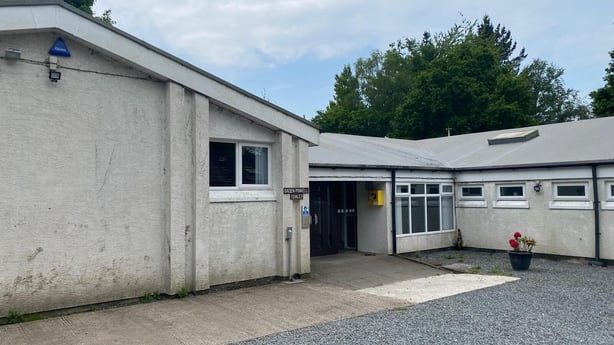
The religious separation of schools dates to the partition of Ireland in 1921.
At that time, the Catholic and Protestant churches in the North were running schools that mostly served their own communities.
The new Northern Ireland government tried to introduce a new system where children would be educated together and the role of the churches would be limited.
The churches did not back it and the attempt failed.
What emerged was a parallel system where most schools are under the management of either the Education Authority, a state body (the "controlled" sector for short, where the majority of pupils are from a Protestant background), or the Council for Catholic Maintained Schools (the "maintained" sector for short, where most pupils are from a Catholic background).
Things remained largely unchanged until one day in September 1981.
Read more: Growing number of doctors in NI leaving NHS for HSE
It was the year of the hunger strikes in the Maze prison and Lagan College, the North's first integrated school, was opening its doors at a time when tensions were at boiling point.
The school was founded in response to violent conflict and division.
In the 1970s, a group of parents called 'All Children Together’ had explored how Catholics, Protestants and other faiths might all be educated in the same classroom.
By 1981, they were ready to open their integrated school.
The Catholic Church had not warmed to the idea.
In 1973, Bishop of Down and Connor Dr William Philbin declared that children in non-Catholic schools would not receive the sacrament of Confirmation.
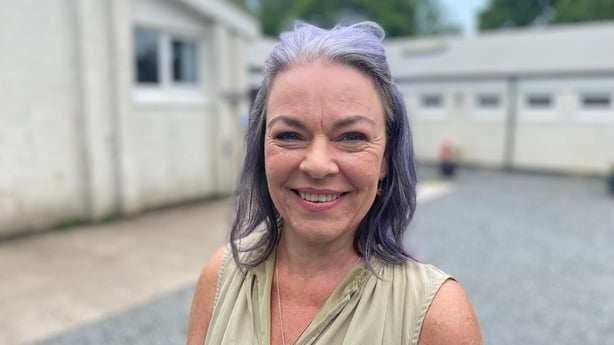
There was some opposition from other quarters too.
Clare Bailey, one of the first pupils, said on the first day there were protests from churches and local elected representatives, and an armed RUC guard was on the scene.
The children were met by a teacher at another location and escorted into the school away from the front door.
There were 28 pupils in September 1981, but no proper school building.
The Scout Association had offered Ardnavalley Scout Hall as makeshift premises.
As the school would not qualify for government funding for at least three years, parents had to make financial sacrifices to pay for basics such as books and uniforms.
Lagan College evolved, and with 1,500 pupils, is now one of the most over-subscribed schools in Northern Ireland.
Clare Bailey says she loved her time there and it shaped her family and politics "in a way no other school could".
She went on to become leader of the Green Party in the North.
However, she is disappointed there has not been more widespread growth of integrated education.
"I think that's all to do with power, and when you have control over schools, over children, over education, there's a lot of power in that, whether that be political, religious, cultural," she says.
"Power is never given up very easily, it's always going to be a struggle. And we've created these systems where ‘you do your thing and we'll do our thing’, and keep that rolling."
"So if you want to upset that, what you're really doing is coming in at the real foundations of challenging power."
Integrated education has spread to Glenarm, a mixed village along the coast of Co Antrim.
Seaview Integrated is now the main primary school for all children in the area.
However, the decision to transform from a Catholic to an integrated school was not just about a commitment to reconciliation.
Pupil numbers had been falling. Principal Barry Corr says the decision was also pragmatic.
He says every day from the window of his office, he could see two yellow buses.
"They were going in two different directions and they were bringing children from our village to other schools, to other Protestant schools nearby.
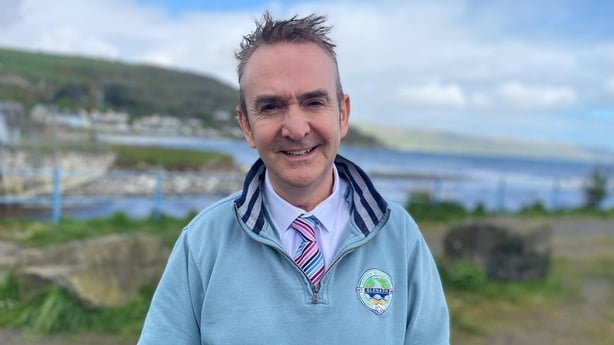
"We were a Catholic school in the village and we realised that we were not accommodating for everyone in the village, and we knew we had to change," he says.
As enrolment numbers at the school continued to fall, the Catholic education authorities were preparing a proposal to close the school.
Mr Corr says there was strength of feeling locally that the village could not thrive without its own school, so a proposal was put to parents to transform from Catholic to Integrated status. Around 95% of parents voted in favour.
The village itself is fairly integrated, a mixed community that had mostly been shielded from the worst of the Troubles.
Nicola Currell, who has had five children attend the school, grew up in the village.
"I went to school on the other side of the bridge here at Glenarm Primary School, it was a Protestant school and then Seaview, there was the Catholic school here too.
"So it's quite sad when you think about it - I had a friend who was here at school, and we would have passed each other on the bridge every Monday morning."
"So we played together all weekend and then the Monday morning, you were separated again for school. Which is quite sad because everybody should be learning together, it doesn't matter about religion."
Barry Corr says there were plenty of questions and concerns from parents in the beginning, for example that an integrated school was a secular school or that certain sports would no longer be played.
However, that isn't the case. The school is Christian but non-denominational.
Catholic pupils are still prepared for Communion and Confirmation during school time. Their new Protestant friends sometimes attend the event itself.
Catholic pupils may bless themselves at prayer time if they wish and sometimes go to Mass if they wish.
Gaelic football and hurling are still played but so are rugby and hockey.
However, religious icons, such as statues of the Virgin Mary and crucifixes were removed.
"We thought it was important to live the transformation journey from the get-go. We wanted to show that we were really into this."
"Unfortunately, Mary had to go but that was that was part of the process. Parents were happy about that, there had to be some changes. There's some give and take," says Barry Corr.
The school system in the North is state funded and has one curriculum.
Pupils from any background are free to attend any type of school but mostly attend the one matching the religious tradition of their family.
Professor of Education at Queens University Belfast Joanne Hughes says research evidence suggests this divided system "can actually contribute to the perpetuation of hostilities in a number of different ways".
"First of all, the kind of physical separation of children has been shown in a divided context to allow for the fostering of negative attitudes towards ‘the other’.
"Also, it's been shown that where you have a divided education system, the delivery of education within that can be biased, particularly pertaining to subjects like history," she says.
Ms Hughes says the majority of teachers in Northern Ireland attend separate teacher training colleges and often grow up in communities that are separate.
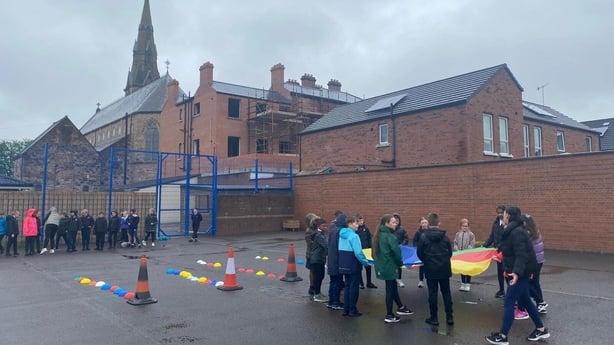
"They bring their own interpretative framework or their own kind of baggage to the classroom."
There are around 1,000 schools in the North and only 70 are integrated.
Joanne Hughes says there is not a body of research evidence for why growth has been slow but has her own ideas on why it might be so.
"Schools are important and cherished institutions that reflect a particular cultural and religious background and for parents that can be important."
"And it seems that parents are making decisions based on academic or educational aspirations for their children, as opposed to a commitment to integration, certainly at post-primary level," she says.
In a speech in 2022, President Michael D Higgins rowed into the debate and laid the blame for slow growth of integrated schools squarely at the feet of politicians.
He said: "The ongoing desire by some political figures to keep schools religiously segregated, has understandably and justifiably been interpreted by some commentators as a cynical tactic at best, aimed at satisfying their core support base.
"An exclusionary sectarian method, often reinforcing notions of ‘the other’."
The DUP hit back, pointing out the vast majority of schools in the Republic are run by the Catholic Church.
Some schools in the North do have a mix of all faiths and none and some church leaders feel those schools are unfairly portrayed.
Donal McKeown, the Bishop of the Catholic Diocese of Derry and chair of the Council for Catholic Maintained Schools, says education reflects the divided nature of society in the North.
"Schools reflect the areas that they come from. But I know Catholic schools have been very keen to ensure that they reach out and build bridges wherever they can."
He gives an example of a Catholic school in Derry where the head boy was recently from a Muslim background.
"The idea that Catholic schools are somehow exclusive to Catholics - partisan, divisive and sectarian - is unfair."
"A caricature of black and white – integrated is good and others are bad, is a very unfair, ideologically driven portrayal of what's happening in Northern Ireland. All schools are committed to building bridges, to building reconciliation.
"We have absolutely no problem with Integrated schools. If there's a demand for formally Integrated schools, that's grand. But I think if we restrict it to the only tool for delivering integration and reconciliation, I think it would be a long, long time getting any results," he says.
When asked about the 1973 declaration from the Bishop of Down and Connor that children in non-Catholic schools would not be confirmed, Bishop McKeown says it was harsh.
"I think we've come a long, long way since then. In the early 70s, we had a very fragmented, bitter society and people would have said things or made judgments that looking back on them now, were not very wise, were not very far-seeing. Yeah. And that particular opinion was very unhelpful at that stage."
For a long time now, churches in the North have been clear. Schools are open to all faiths and none. But just because an aspiration for more diverse enrolment exists, does not mean it happens in practice.
"When you look at the statistics, there is very limited mixing of Protestant and Catholic children in our education system. That is a fact," says Róisín Marshall.
Ms Marshall is from the Northern Ireland Council for Integrated Education.
The organisation analysed figures from the Department of Education and found almost a third of schools in the North have no religious mix at all.
"How do we change that for the children in the future?" asks Ms Marshall.
"This is about enabling an alternative to the traditional controlled and maintained sectors. This isn't about anyone getting to dominate, but everyone getting to participate."
She says both integrated education and shared education are useful approaches.
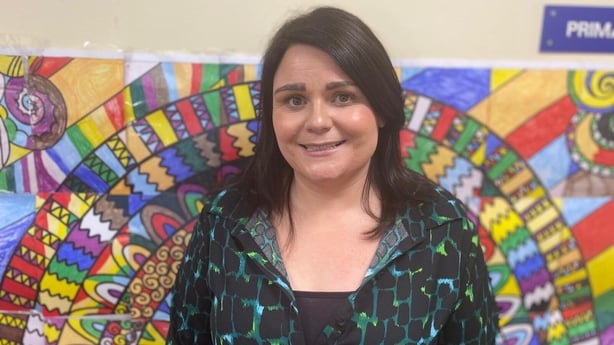
Shared education programmes can take different forms, but in the case of St Matthew’s and Nettlefield Primary Schools in Belfast, it meant children getting together in each others’ schools for shared classes and projects.
Sarah Loat, the programme coordinator, says that parents were initially against the children mixing when the idea was floated in 2018.
The schools are a ten-minute walk away from each other but can feel a world apart.
They are located on an interface, an area where segregated nationalist and unionist residential areas meet.
Places like this often saw the worst of the Troubles. The two main communities tend to live separate but parallel lives.
"Some parents didn't want the children walking into that end of the town with their uniform in case something happened to them," says Ms Loat.
"They had this fear that someone would beat them up, walking over with us. It could have been as simple as it was historical hatred or historical things that happened in their family, and they thought no, I’m not mixing with someone from that side."
"It was more parents’ issues than the children's issues. The children don't see it as they're different.
"They just see that they're not allowed to play with those children. It's really historical parental issues, and what's happened in their childhood that's now shone on to their children.
"They just didn't want them mixed in. And that was it."
Because the majority of parents didn't want their child to visit the other school, Sarah Loat had to spend the programme money on busing children to a neutral venue and hiring independent facilitators.
Too many parents didn’t want a teacher from another religious faith teaching their child.
Sarah Loat says this would have surprised her before teaching in Belfast, but not anymore.
She says people in the area have been through the worst of the Troubles, and certain issues and historical feelings persist.
"When you consider those sort of things that are still happening, it doesn't shock me. But if I hadn't taught here, it would have completely shocked me."
The shared education programme moved in baby steps so the parents could gradually get used to the idea.
Teachers began to replace the independent facilitators. Then parents were asked to walk their child to the other school so they could see it was safe.
Today, the children go in and out of each other's schools for projects every couple of months.
Sarah Loat thinks shared education programmes are necessary as integrated schools may not be possible in every area.
"It depends where you live. In this area, it definitely wouldn't be that easy. I think the children here are dealing with a lot."
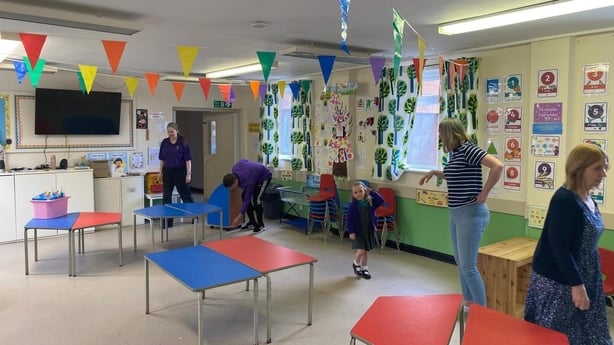
She mentions an incident where one of her pupils announced in class that there had been a shooting in the area over the weekend, and it was annoying because it happened at dinnertime when people were trying to get their Chinese takeaways.
"She did not see a problem with being shot, it was how inconsiderate they were that she couldn't get her Chinese. That was normal to her."
"They're different childhoods and what is normal to them is not normal to other children, which is sad sometimes."
For all the ways that children can be separated in education in the North, a school in the unionist stronghold in East Belfast subverts traditional expectations.
It is an Irish language nursery called Naíscoil Na Seolta.
The Irish medium sector is growing in the North, with around 8,000 pupils, but this is the only integrated school that teaches through Irish.
Founder Linda Ervine says the children come from a mix of Protestant, Catholic and newcomer backgrounds.
"But what we're finding is a lot of our children, are ‘others’ and the parents are mixed marriages - so you've one Catholic and one Protestant."
"I suppose they are symbolic of the new Northern Ireland, of the way things are changing. They’re saying they don't want to sign up to one thing or the other and that's why we feel that they're choosing integrated education," she says.
Whatever way schools are organised in the North, what most have in common is struggling with funding.
More than three quarters of schools are expected to be in debt this year if they don't get more money.
There has already been a significant round of cuts to schemes. The grant that provides the least well-off children with food during school holidays has been scrapped.
In light of schools struggling with financial basics, some people have raised the question of whether it’s fair to also lay the responsibility for reconciliation at the door of the education system.
"As one of my colleagues has said, when society itches, schools get scratched," says Joanne Hughes.
"And I think it's probably unfair to lay social cohesion and resolving the problems of Northern Ireland on the schools."
"In terms of seeing integrated education as a panacea, I think we do need to be careful.
"But education in general, I think, has a role to play in respect of social cohesion and promoting better intergroup relations in the context of division."
Our Lives in the North is a new six-part podcast series from RTÉ Radio 1, available on the RTÉ radio app or wherever you get your podcasts.
Listen: Episode 1 Health






